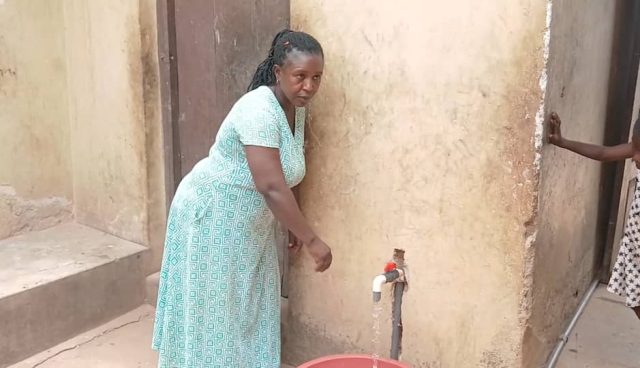For generations, women and children in Abenase, a rural community in Ghana’s Ashanti Region, began their days before sunrise, trekking miles to collect water from overburdened boreholes and murky streams.
Hours once lost to waiting in lines and hauling heavy buckets under relentless sun have now been replaced by the steady flow of taps inside homes, marking the end of a decades-long water crisis.
The shift follows a recent push by local leaders to install piped water systems across this community of 17,000, a milestone that aligns with global efforts to achieve universal clean water access by 2030 under the UN’s Sustainable Development Goals. For Abenase, however, the change transcends policy benchmarks. “Our children can finally go to school on time, and we have hours back to work or care for our families,” said Abena Nyarko, a mother of four. “This is the development we prayed for.”
The transformation began when Abenase’s chief, Nana Dr. Akuoko Boateng, commissioned new boreholes to mitigate shortages. Building on this, Assemblyman Adom Saahene and local committees secured funding to expand pipelines directly to households—a rarity in rural Ghana, where many still rely on communal sources. “Our target is 80% coverage by 2025,” Saahene said. “No one should sacrifice their day for a basic need.”
Residents describe the impact as life-altering. Cases of waterborne illnesses have dropped sharply since the switch to treated water, according to health workers. Children previously tasked with fetching water now attend school consistently, while adults report increased productivity in farming and trade. “The water is clean, and our families are healthier,” said Mary Owusu, who recalls years of rationing contaminated supplies.
While Ghana has made strides in urban water access, rural regions like Ejisu Municipality lag behind due to funding gaps and logistical hurdles. The Abenase project, funded through local taxes and development grants, offers a blueprint for neighboring villages. Yet challenges persist: some households remain unconnected, and maintenance costs loom.
As the community adapts to this newfound convenience, broader shifts are emerging. Small businesses, from seamstresses to street vendors, are flourishing with reduced water-fetching burdens. Teachers note improved student attendance, while clinic workers report fewer diarrhea cases. For now, the sound of children playing, rather than queues at boreholes, fills the air, a simple joy that underscores what access to water truly means.
Send your news stories to newsghana101@gmail.com
Follow News Ghana on Google News

















